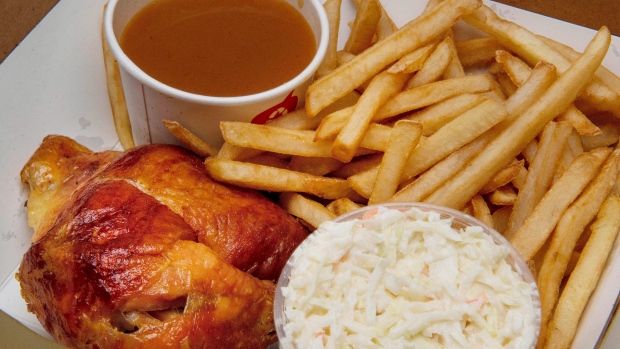Mar 12, 2018
Cara Operations hikes select prices, changes menu to manage Ont. minimum wage hike
, The Canadian Press

TORONTO -- Restaurant operator Cara Operations Ltd. has managed the impact of Ontario's minimum wage hike through selective price increases and menu changes at its various banners, chief executive officer Bill Gregson told analysts Monday.
In fact, Gregson said, that "most of our banners . . . have had stronger sales in Ontario than in other parts of Canada."
Its banners include the Harvey's burger chain, Swiss Chalet and St. Hubert chicken restaurants, and a variety of mid- to higher-end dining establishments such as Kelsey's, East Side Mario's and Milestones.
The Ontario government's decision to increase its minimum wage on Jan. 1 to $14 per hour has sparked a debate about whether the hike would be an net benefit for the country's largest provincial economy, given its impact on companies' bottom lines.
Supporters of the wage hike have argued it could stimulate consumer spending while detractors have warned that it could spur inflation if businesses pass along the costs to consumers and job losses if businesses cut back on labour.
Gregson said that it's too early to say how Cara will be affected in the longer term, but in the first weeks of 2018 there's been no evidence that consumers are pushing back against its selective price increases.
"It's not necessarily across the board on every item," he said. "We've tried to minimize the price increases."
In some cases, Gregson said, Cara has removed some items from menus if they are labour-intensive or have costly components.
Cara has benefited from virtually no inflation in its cost of food, he added.
"In Ontario, for our corporate stores, that whole juggling of all those different factors seems to have worked. But it's only two months in."
The company, headquartered in Vaughan, Ont., owns one of Canada's biggest restaurant groups with 1,272 locations under 18 brands.
In January, it announced a $200-million deal to buy Keg Restaurant Ltd., which operates a chain of 160 steakhouses.
Gregson's comments follow Cara's release of fourth-quarter results on Friday that showed it had $27.3 million of net income for the 14 weeks ended Dec. 31.
That was up from $19.7 million a year earlier, when there was a more normal 13 weeks in the 2016 fourth quarter.
Cara's gross revenue was $225.4 million, up from $175.6 million, while system sales for its various restaurants were $774.9 million, up from $641.1 million.
Same restaurant sales -- which indicates performance for most locations open at least a year -- were up 2.5 per cent.
Gregson said that most of the year-over-year increase in restaurant sales was due to higher prices but there was also some increased customer traffic.



